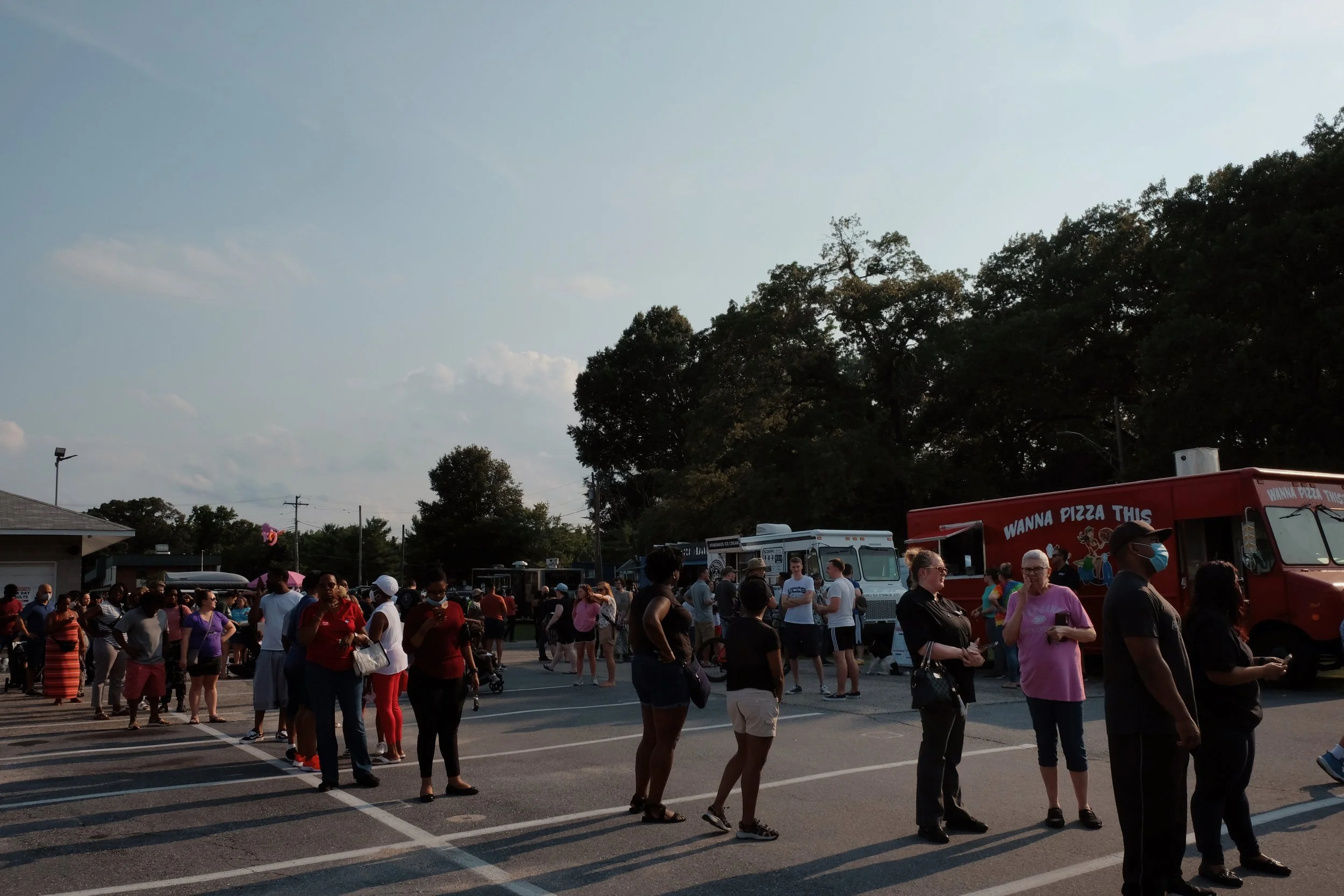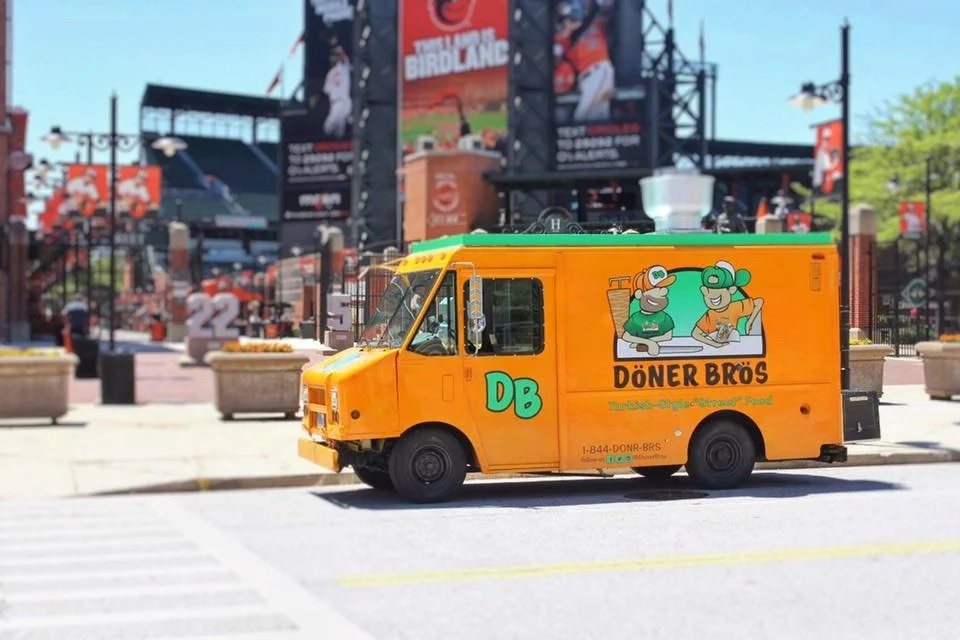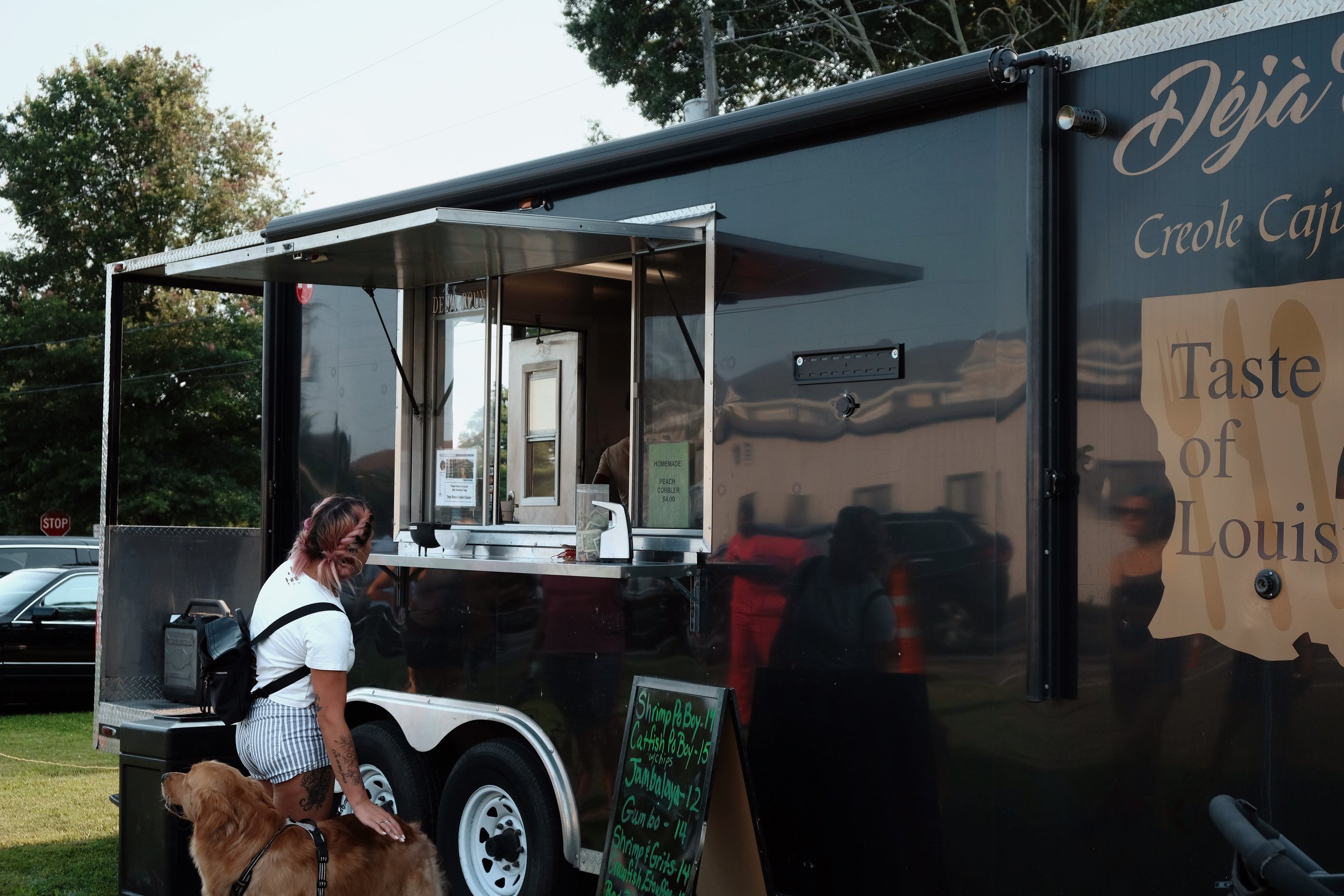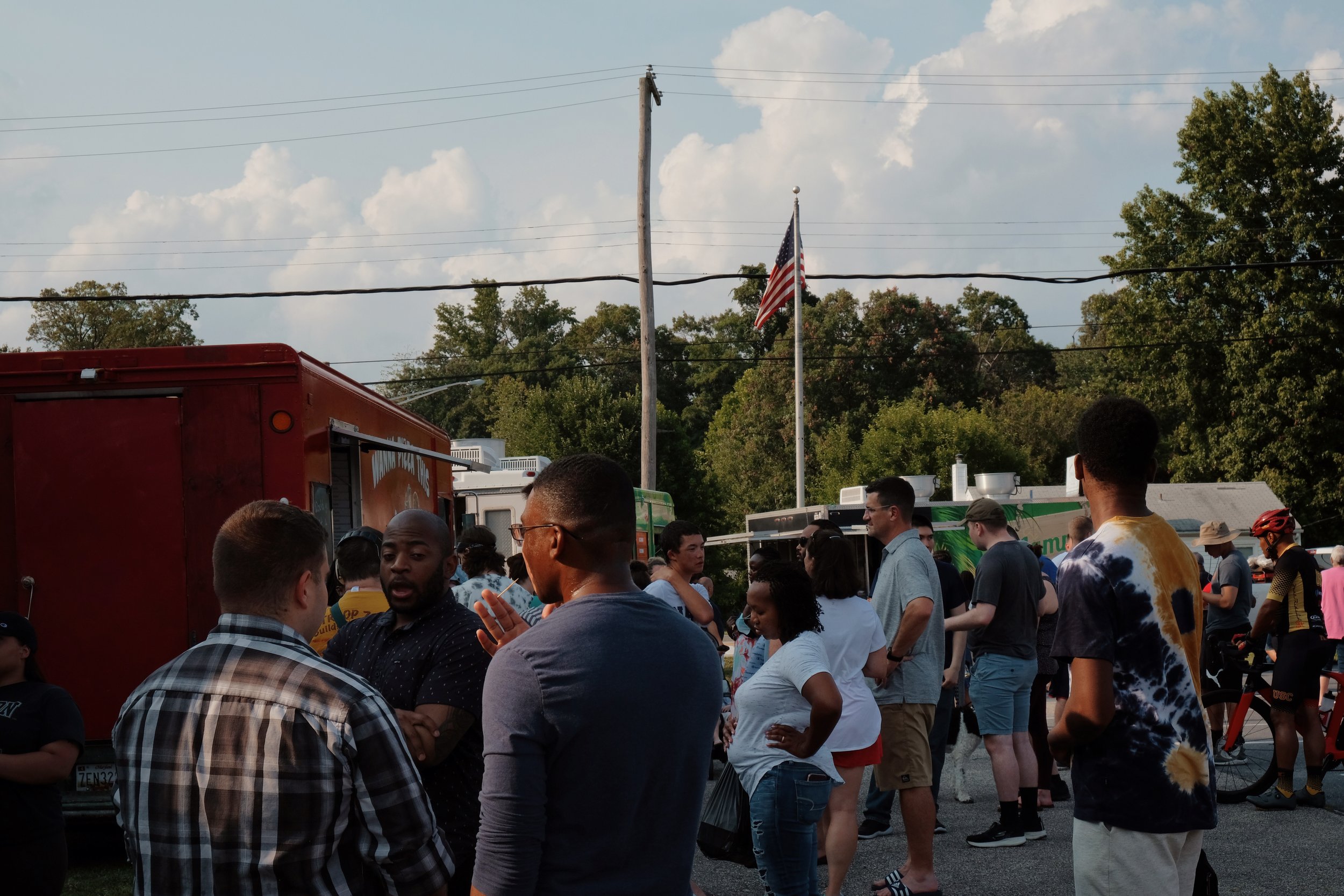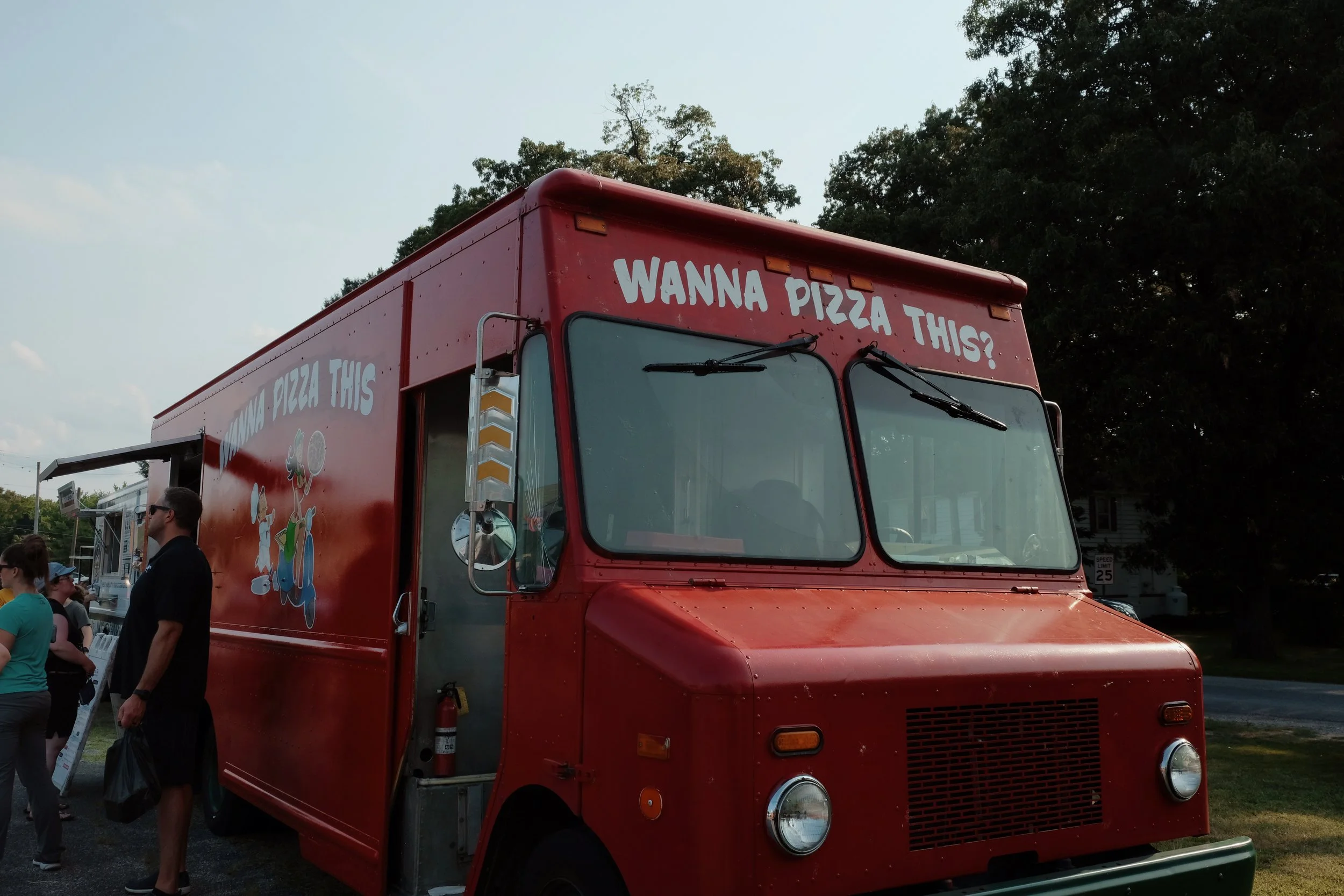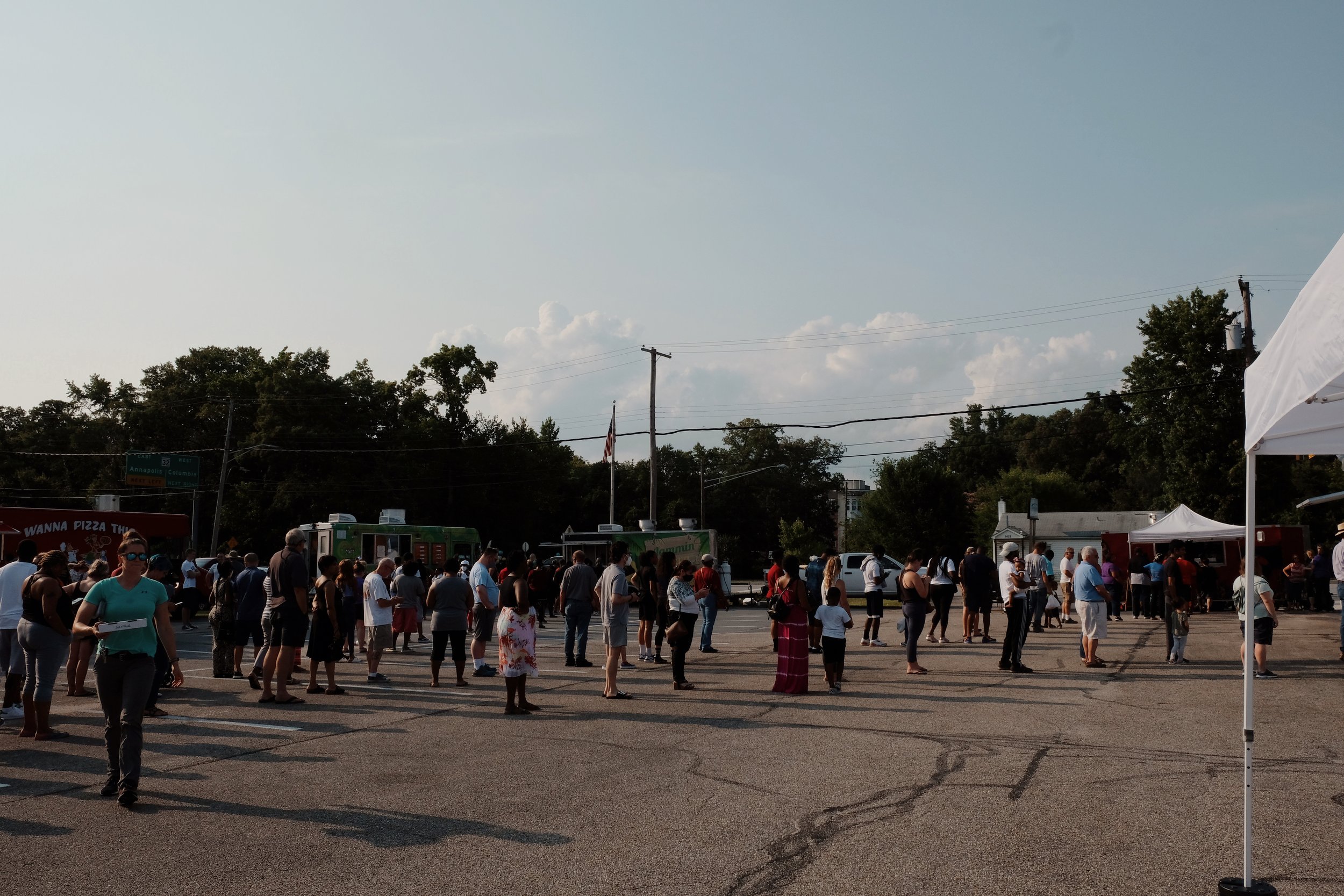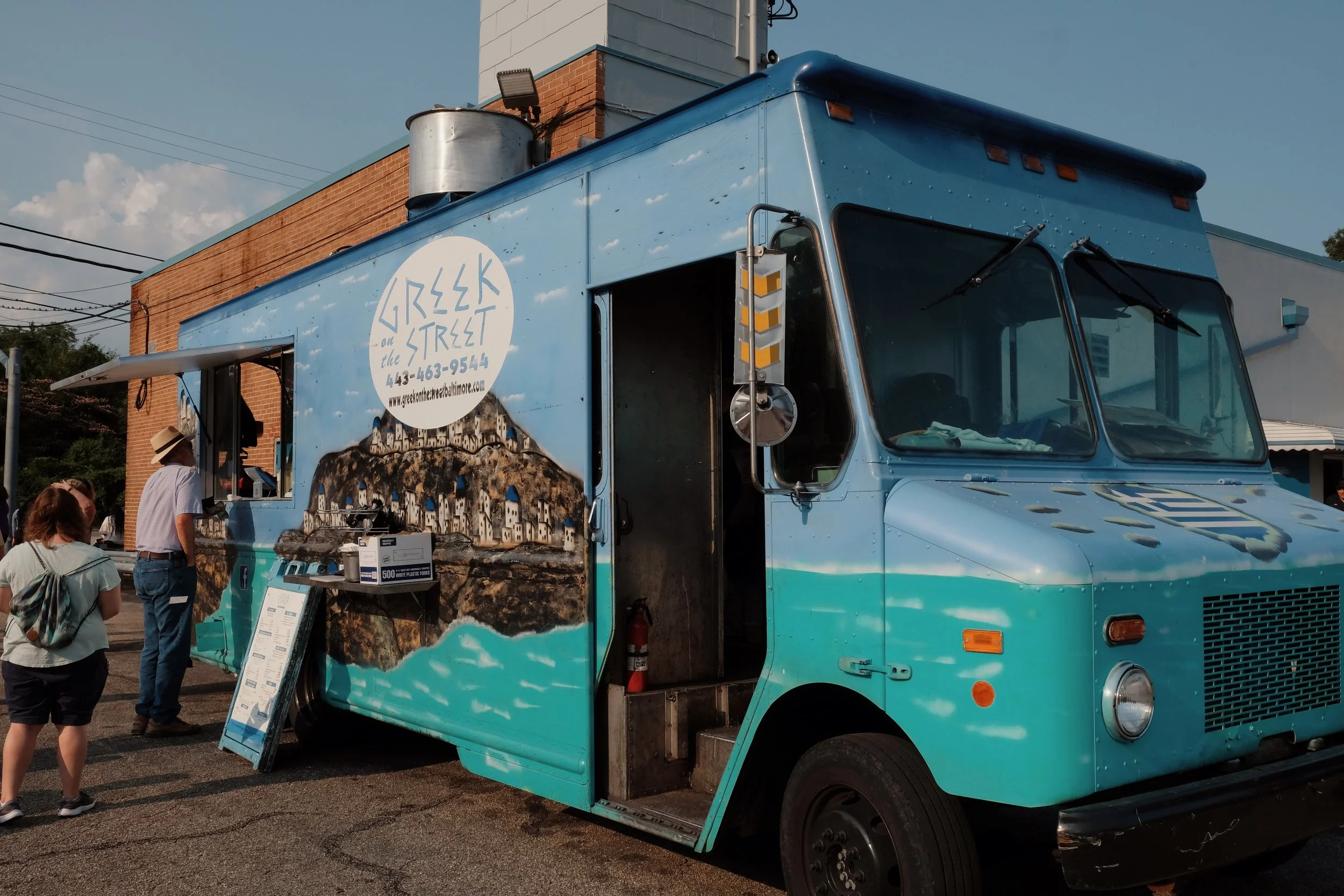Everybody Loves Food Trucks. So, Why Do Lawmakers Make It So Hard For Them To Exist?
Patrons stand in long lines at Food Truck Thursdays, a weekly food truck event in Odenton, Maryland. Photo by Damon J. Barnes (@damonjbarnes).
The history of food trucks dates back to the 1600s, according to FoodTrucksNU. It was a time where there were only a few trucks in business, but as the food truck scene began to grow so did the competition resulting in food truck movements all across the nation. Entrepreneurs began to take their experiences and love for cooking into the streets, giving life to people's taste buds. Every single dish tells a different story and, since expanding, the streets are finally taking notice. You can not walk by a food truck without wondering who is making these delicious meals.
The DMV’s food truck scene has been growing for quite some time now. Wherever you go, especially within Washington D.C. and Baltimore, you often see trucks scattered around the area or united together running successful businesses. “Food is a cultural glue, it brings people together and creates connections that wouldn’t exist,” says Steven.
Döner Brös’ bright-orange food truck parked in front of Oriole Park at Camden Yards. Photo courtesy of Döner Brös.
Steven Banks and Alex Politsch are the founders of Döner Brös, a Turkish take-out restaurant in Baltimore. After visiting Germany back in 2015 to attend Oktoberfest, Steven and Alex stumbled upon the world-famous Döner Kebab. Originating from Turkey, this well-known dish made its way into Berlin where they “wrapped these ingredients in a kind of bread known as durum,” according to Culture Trip. With this unique blend of culture in a dish, it inspired two long-time friends to come together, take a leap of faith, and serve what they love.
Since 2017, Döner Brös have served all across the DMV area and have garnered a lot of experience underneath their belt. While starting the food truck “wasn’t tough”, there was still an experience curve. “[It’s] confusing when you don’t know anything, which we didn’t when we began this journey. We had to build out the truck ourselves which sucked–but it saved us 10-15 thousand dollars,” says Döner Brös.
At times when the going got tough, Steven and Alex relied on one another while also leaning on other food truckers who were facing the same day-to-day challenges of food truck entrepreneurship. “There’s a lot of money, time and hard work that goes into building out a restaurant brand, especially when you start from scratch with no blueprint like us.”
Typically, the documents required to run a food truck are:
Proof of ownership, proper identification, and vehicle license
Proof of district-issued food manager identification card
Food purchase record and record-keeping
Depot, commissary, or service support facility meets needs of vending unit operation
Copy of license for the service support facility and/or a recent inspection report
There are so many rules and regulations that are in place to make things difficult for mobile vending yet they continue to thrive. “There’s definitely pride within the food truck sector! These people are the salt of the earth. They have to have some love in their heart to be out grinding on a food truck. It’s not for the faint of heart. You put in the same amount of work as a restaurant owner but you’re serving a third of the time, at best, but it is yours! And almost anyone can do it with the right mindset,” Döner Brös says.
Rules and regulations seem to be very tedious when it comes to food truckers but there are associations that are capable of helping to make things easier. Associations like the Maryland Mobile Food Vending Association (MMFVA), established in 2012, represent mobile food venders on a legislative level and addresses the impact of mobile food vending in Maryland. MMFVA and many other associations stand together to support entrepreneurship and inspire to sustain the growth in food truckers thriving in our local economy.
“The DMV has a bit of catching up to do on the food truck scene.”
Food truckers add a lot of value towards the restaurant industry, economy, and community. To be able to go to the streets, feed the community, and bring people together–that’s invaluable. Yet, Döner Brös believe the municipalities in the DMV are upholding regulations that make it hard for truck owners to operate. “The DMV has a bit of catching up to do on the food truck scene. Food trucks have been a fixture for a while in DC but they’re heavily regulated. And because DC restricts the size of truck you're allowed to operate, the diversity of food choices suffers.”
Though legislation varies from city to city, truck owners face tricky regulations from Baltimore to DC, creating an inconvenient landscape for food trucks. “We actually had a DC truck but it would have been difficult to operate as quickly and efficiently as we needed to in DC on such a small truck. Baltimore is a bit different; when we first opened our truck, Baltimore’s food truck scene was new and the rise of the food trucks happened at the same time as the renaissance of the Baltimore restaurant scene. So, many clashed heads and the city decided to compromise by restricting the food trucks to a few designated spaces on the edge of each neighborhood... the rule was that we weren’t allowed within 300ft of a restaurant storefront who shared menu items,” says Döner Brös.
People stand in line at Greek on the Street, a Greek cuisine food truck at Food Truck Thursdays in Odenton, Maryland.
If legislators want to encourage entrepreneurship and food culture in our region, more accommodating laws for food trucks can put these businesses in a better position to become staples of the community. These current laws do not seem fit for the times, especially when you want as many people as possible to taste what's on your menu.
In today’s age, anything can be achieved through hard work and dedication. Food truckers everywhere are striving to bring local communities together by serving up their stories on paper boats, take-out trays, and foil wraps. For Döner Brös: “Food trucks bring opportunity, inspiration and flair to communities. Food trucks become part of the fabric of the local community similar to the ice cream trucks that used to be around back in the day. Food truckers are the 2020’s version of the ice cream man. The more you see them the more you feel like you’re part of their journey.”

